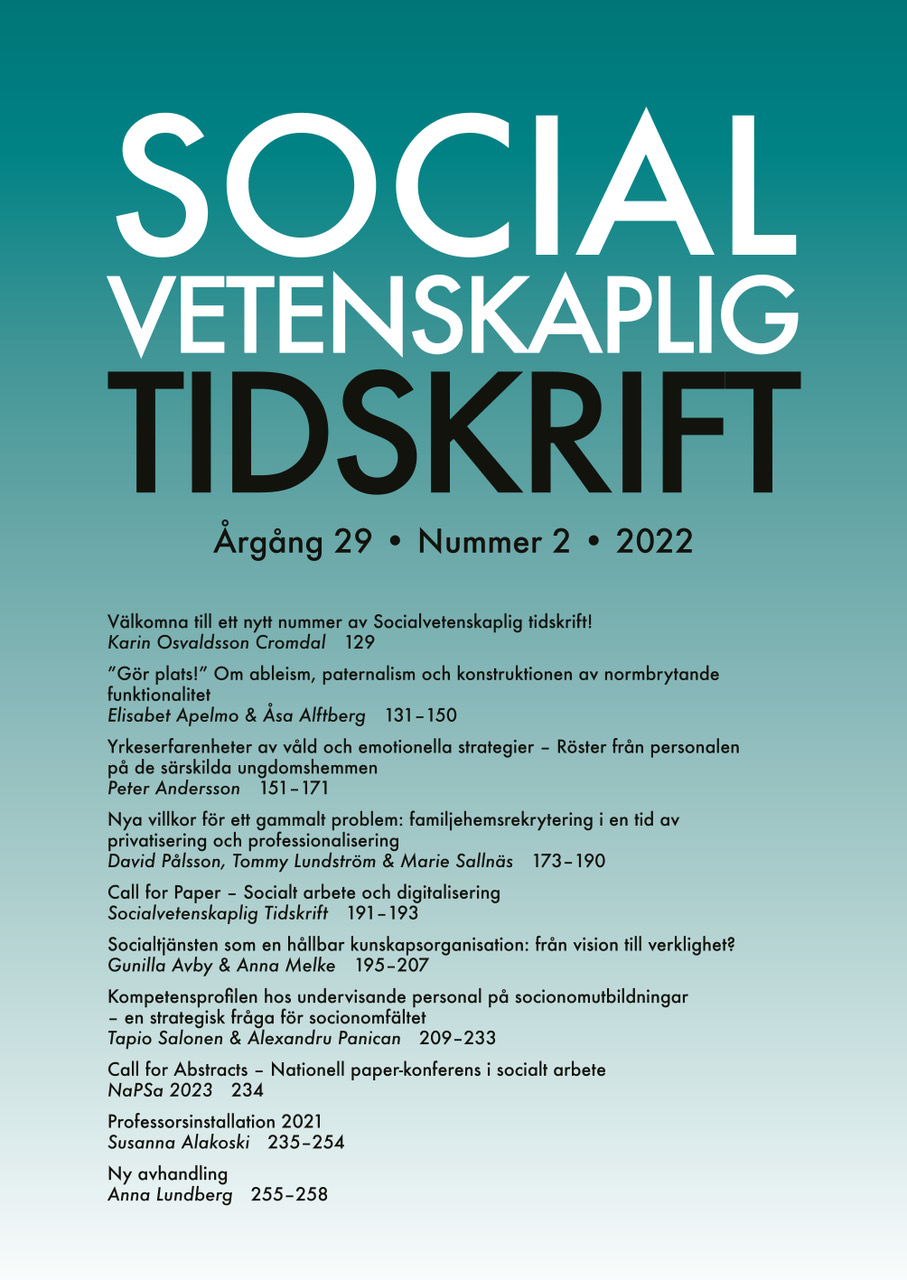Socialtjänsten som en hållbar kunskapsorganisation
Från vision till verklighet?
DOI:
https://doi.org/10.3384/SVT.2022.29.2.4613Abstract
Social Services as a sustainable knowledge organization: from vision to reality?
The imminent Social Services Act is expected to stipulate that decision-making should be "in accordance with scientific evidence and proven experience". If the proposal is fulfilled, the Act will contain requirements similar to existing acts in other welfare sectors, such as requirements for increased systematic follow-ups, developmental work and the use of knowledge from various knowledge sources. These are characteristics that symbolize a practice that both uses verified knowledge and develops new knowledge by testing, documenting and evaluating new ideas and working methods in a systematic process in everyday life. In this article, we argue that the goal presupposes an aspiration towards a knowledge organization; therefore we want to contribute with an analysis of what this means for social services.
The “knowledge-seeking social worker” is a key actor in the transition towards a knowledge organization, because it is in the everyday social work practice, that is, the interactions between the social worker and the client, that the knowledge organization largely becomes visible. However, a large-scale transition towards a sustainable knowledge organization cannot depend on only professionals and their ability to engage clients in work processes, it will require changes at a system level, where actors in politics, academia and practice take responsibility for future investments. This article highlights four areas of importance: 1) co-ordination of research and practice, 2) continuing education to build expert knowledge and broaden career paths, 3) development of political ownership for quality and direction, and 4) organization and management for knowledge use and knowledge development.
Downloads
Publicerad
Referera så här
Nummer
Sektion
Licens
Copyright (c) 2023 Gunilla Avby, Anna Melke

Det här verket är licensierat under en Creative Commons Erkännande 4.0 Internationell-licens.
Allt material i Socialvetenskaplig tidskrift publiceras sedan 2022 (Vol 28 Nr 2) med omedelbar öppen tillgång (open access), under Creative Commons-licensen CC BY 4.0. Upphovsrätten till innehållet tillhör respektive författare.
Allt innehåll i tidskriften är fritt tillgängligt utan kostnad och får fritt läsas, laddas ned, kopieras, delas, skrivas ut och länkas. När innehållet används måste författare, källa och licens anges. Författaren kan fritt göra sin publicerade text tillgänglig på institutionella och internetbaserade arkiv, exempelvis sitt lärosätes digitala arkiv eller andra tjänster för detta.
Inga publiceringsavgifter tas ut vid publicering i Socialvetenskaplig tidskrift.


